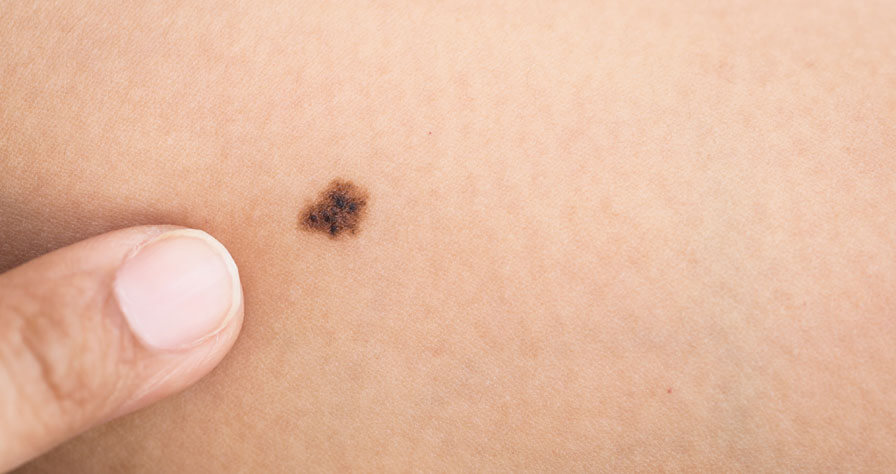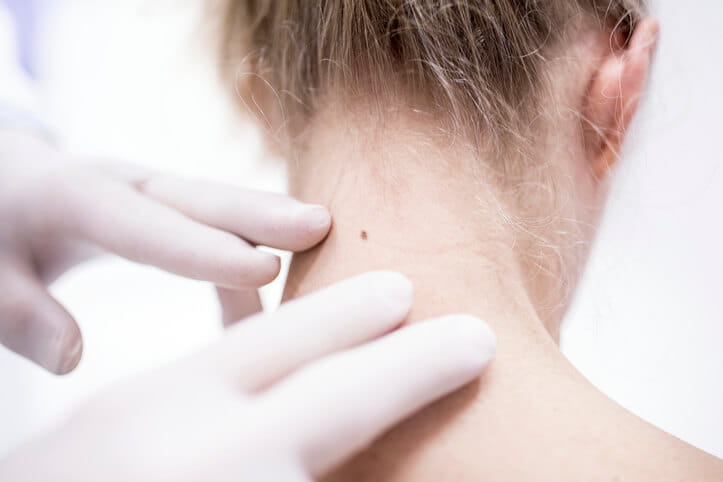Signs of Cancerous Moles

A new mole doesn’t necessarily mean you have cancer – in fact, the development of moles is quite common. Of course, that doesn’t mean that you shouldn’t keep an eye out for them. It’s always better to be safe than sorry, so if you think you have a cancerous mole, you should see your doctor.
Signs a Mole Can be Cancerous
Here are some of the signs to watch for with moles:
- Shape & border: Benign moles are generally symmetrical, meaning their shape is even on both sides. If you notice that one side is bigger than the other or there is a white line somewhere inside the mole, have it checked out.
- Diameter & elevation: It’s important to look at the size of your moles. Cancerous moles tend to be larger in diameter. If your mole is as large as a pencil eraser or larger, or if your mole is raised, you should be sure to have it looked at by a doctor.
- Unusual colors: Normal moles are generally uniform in color and tend to be brown, tan or skin color. If your mole appears to have different colors, you will want it looked at. Also watch out for moles that have shades of red, blue, black or white.
- Changes: If you notice any changes in your moles, it’s important to have it checked out by a doctor. Normal moles will remain the same over the years. Changes in moles can be indicative of cancer.
- Location: Certain areas of your body are more prone to skin cancer because they are more likely to receive sun exposure. These locations include your arms, chest, ears, face, hands, and neck. To reduce the risk of skin cancer, be sure to wear a sunscreen with at least 30 SPF.
The good news is that cancerous moles are fairly rare. That said, it’s still important to be on the lookout for changes in moles or new moles that you haven’t noticed before. It’s ideal to do a skin cancer self-examination every month. If you find something that doesn’t seem right, have it looked at.
Baptist Health is known for advanced, superior care for patients with cancer and the diagnosis, treatment, and management of skin cancer. Our accredited, award-winning cancer care team includes surgical specialists, nurse navigators, genetic counselors, and psychosocial support.



